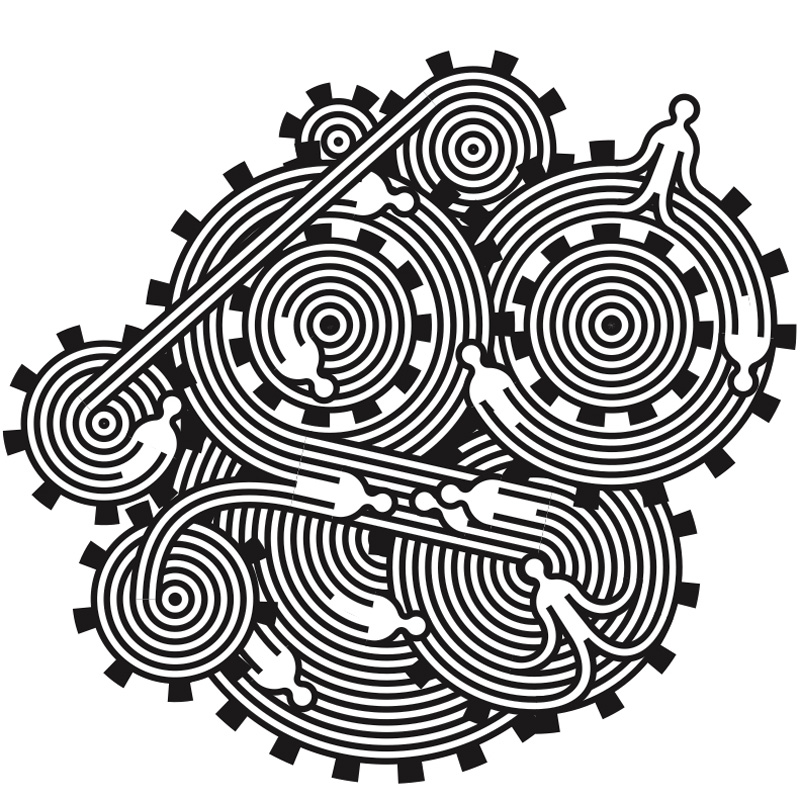Difference between revisions of "Holotopia: Power structure"
m |
m |
||
| Line 17: | Line 17: | ||
<p>We look at <em>the systems in which we live and work</em>. Imagine them as gigantic machines, comprising people and technology. Their function is to take people's daily work as input, and turn it into socially useful effects.</p> | <p>We look at <em>the systems in which we live and work</em>. Imagine them as gigantic machines, comprising people and technology. Their function is to take people's daily work as input, and turn it into socially useful effects.</p> | ||
<p>While the ingenuity of our innovation has been focused on small gadgets we can hold in our hand—we have overlooked this incomparably more important creative frontier.</p> | <p>While the ingenuity of our innovation has been focused on small gadgets we can hold in our hand—we have overlooked this incomparably more important creative frontier.</p> | ||
| + | <p>Notice that we are right away taking you into the heart of our matter: Innovation, understood in a most general sense as we are doing that here—as "using our creative abilities", is what drives our civilization or 'bus' or societal and cultural evolution forward. We will here be talking about the need to change the very value, or the rule of thumb, which determines the <em>direction</em>. The present rule of thumb is to rely on free competition, or the market. How well does it serve us? Is there a <em>better</em> way to direct our efforts?</p> | ||
</div> </div> | </div> </div> | ||
Revision as of 12:04, 22 June 2020
Contents
H O L O T O P I A: F I V E I N S I G H T S
Power structure
Powered by ingenuity of innovation, the Industrial Revolution revolutionized the efficiency of human work. Where could the next revolution of this kind be coming from?
We look at the systems in which we live and work. Imagine them as gigantic machines, comprising people and technology. Their function is to take people's daily work as input, and turn it into socially useful effects.
While the ingenuity of our innovation has been focused on small gadgets we can hold in our hand—we have overlooked this incomparably more important creative frontier.
Notice that we are right away taking you into the heart of our matter: Innovation, understood in a most general sense as we are doing that here—as "using our creative abilities", is what drives our civilization or 'bus' or societal and cultural evolution forward. We will here be talking about the need to change the very value, or the rule of thumb, which determines the direction. The present rule of thumb is to rely on free competition, or the market. How well does it serve us? Is there a better way to direct our efforts?
Stories
Power structure Consequences
The direction is wrong—and costly!
How much did ignoring "the systems in which we live and work" cost us?
On Page 4 of the article The Game-Changing Game–A Practical Way to Craft the Future we answered this questions by a brief summary of our Ferguson–McCandless–Fuller thread, of which we here provide only highlights. A look at David McCandless' Billion-Dollar-o-Gram 2009 will supplement a plastic illustration of our points.
The money leaks were systemically caused
We tell the story of Charles Ferguson's two award-winning documentaries to highlight that the two issues that vastly dominate the Billion-Dollar-o-Gram are systemically caused or "inside jobs", as title of the second film suggested.

